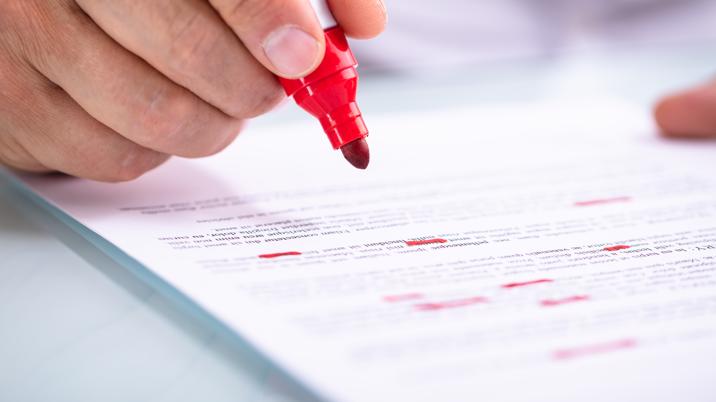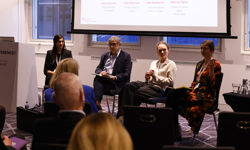
It’s 60 years since Fellini’s La Dolce Vita gave the paparazzi their name. They looked cool then. Today, they’re the personification of press intrusion, the demon figures of the mainstream media. The events of the night Princess Diana died in Paris are part of that shift, so it’s not surprising that Prince Harry feels the way he does about the press. But the hatred goes further than the tabloids. Now the couple want out of the royal rota too, leaving them to work with “grassroots media organisations and young, up-and-coming journalists” instead.
Megxit is an extreme example of how trust in the traditional media has broken down in general. Meghan clearly wasn’t used to the unique intensity of the royal spotlight. Celebrities have got used to having things their way in some sections of the media at least. They know that their celebrity on a cover helps to sell magazines, and often the magazines need them more than they need the magazines. They want to protect and grow their brands, so it’s not surprising that given the chance, they make pre-publication sight or approval a condition of an interview or, more importantly for some, a photo shoot. It depends on what kind of magazine you edit, but ethically that can be a tough one. Where does it stop?
Policy on the trade magazine I edit is never to allow sources or their PRs to approve articles. We don’t do celebrity much so it’s not been that hard to stick to, but we are still sometimes asked to send our draft articles for approval. You can’t blame PRs for trying it on, because they don’t know, because we once had a journalist who didn’t follow policy or because other publications might bend and well, you never know, what have they got to lose? We can only say ‘no’ and we do. There are many reasons (including legal) but here are just a few.
Reasons to say ‘no’
It is good business as well as good ethics: we want our readers to know that what they’re reading is the true account of an interview or a visit as we see it, unedited by vested interests. Other versions are available elsewhere – but in our publication, they get ours (the exception of course is sponsored items, clearly labelled). Worst of all, pre-publication approval or sight of copy can lead to self-censorship. Why bother writing anything critical if it’s only going to be refused?
There are also practical reasons: producing a magazine becomes twice as difficult and risky when an article can be re-written by the subject. If it’s not their main job, it can take them forever to get around to it and they may not take deadlines seriously. PRs may reassure us that they just want to give it a ‘quick read’ or a ‘skim through’. Then when it does come back, it’s covered in tracked changes – the Word equivalent of red ink – with quotes made more verbose and boring, product names capitalised as per their branding guidelines, phrases like ‘world class’ or ‘leading’ placed in front of their company name. They may even argue with the way we have covered others mentioned in the article. Basically, it’s ruined and the choice is to publish and be dammed or spike it and pay for a replacement.
So, if their request to approve the article comes after our research, we just have to say ‘no’. If it comes before, we persuade them otherwise or do without. We rarely lose opportunities that way. But I can understand why magazines whose bread and butter is celebrity, agree to it. They know that if they don’t agree to it, their competition will, especially in the digital, social media and click bait era where outlets are sometimes not much concerned about the truth let alone what may be the complete truth. So they could work together for a good result: the magazine gets its cover story, the celebrity gets themselves across and readers get to read about their heroes. Again, that could be good business for your particular brand and I can think of many magazines for whom it certainly is. And if it’s worth falling out, they could always publish and rely on the simple ‘truth’ defence.
This is all changing with the growth of non-disclosure agreements. We sometimes sign these to protect embargos, for example, or competitively sensitive secrets we might accidentally, rather than deliberately, reveal. It’s sometimes overkill where trust should be enough but we don’t want to break embargos or damage the company by revealing their IP to competitors. They are usually more about timing, or specific about what they cover (eg. photography of a production line) so it doesn’t lead to the subject approving our coverage and all the issues that brings.
However, catch-all NDAs seem to be spreading. For example, when Ivanka Trump spoke at the giant Consumer Electronics Showcase event in Las Vegas in January, journalists requesting interviews had to sign NDAs. Wait a minute? How could they write anything about the interview? Doesn’t that make it pointless? No, they just had to run their articles past her first, or they’d be breaking the NDA.
Such sweeping NDAs could lead to self-censorship or indeed outright censorship: publish and be sued, not because the story’s untrue but because you signed an NDA. Before her father was elected president, it would not have been such a problem – but neither would she have been talking at CES. Now she is more than a rich and famous celebrity, she’s an unelected advisor to the president. NDAs are not conducive to accountability.
Producing a magazine becomes twice as difficult and risky when an article can be re-written by the subject.
This article was first published in InPublishing magazine. If you would like to be added to the free mailing list, please register here.












